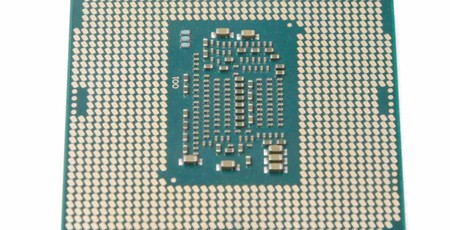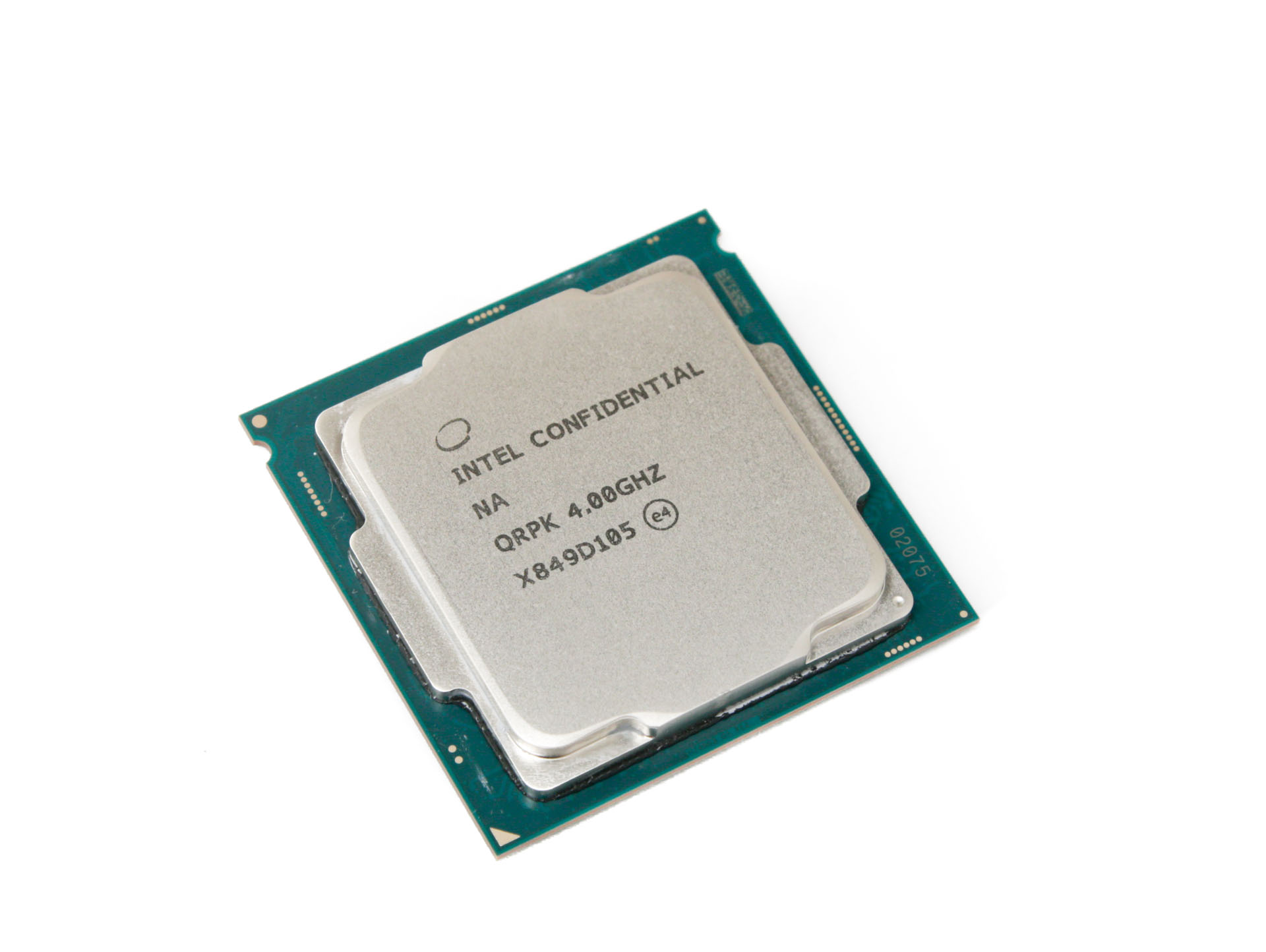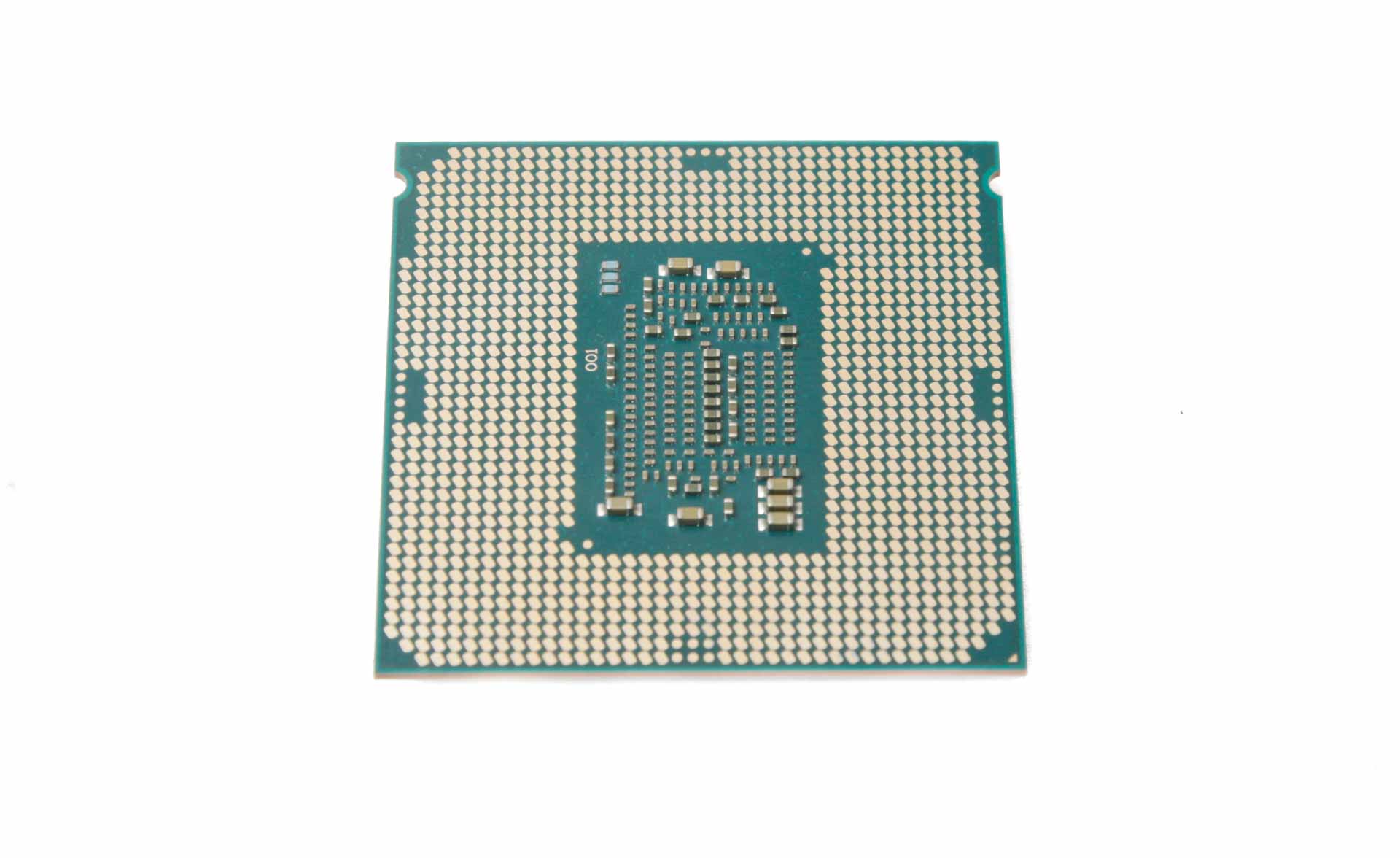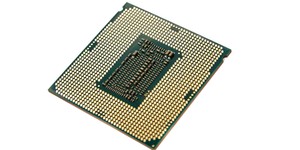
Manufacturer: Intel
UK price (as reviewed): £189.98 (inc. VAT)
US price (as reviewed): $210.74 (exc. tax)
We're not entirely sure why Intel hasn't refreshed the lower echelons of its CPU product stack till now, but 14nm supply constraints would be an educated guess. Either way, we finally have options below the Core i5-9600K, which has, since October last year, been the cheapest way to buy into Intel's 9th Generation lineup until only recently. Above that, the offerings and segmentation have shifted, with the six-core/12-thread Core i7-8700K not really having a true successor given the Core i7-9700K sports two additional cores but four fewer threads.

Below it, though, Intel is keeping things a little more constant, and the CPU we're looking at today - the 4C/4T Core i3-9350KF - is very much an immediate successor to the 4C/4T Core i3-8350K, which, while not a multi-threaded powerhouse, was still worth considering for a pure gaming rig when paired with a cheap Z-series motherboard. After all, it was effectively a Core i5-7600K for much less money, and it helped that we managed to overclock our sample to 5.1GHz.
While the Core i3-8350K came with value for money in its favour, that same value looks set to harm the Core i3-9350KF we have here. The former costs £135, while this new CPU has launched at £180. That's a whopping 33 percent hike, and makes it also more expensive than the £155 Core i5-9400F, which has two additional cores/threads but lacks an unlocked multiplier.

So what do you actually get over the Core i3-8350K for the extra money? Well, there are a few differences to the specifications. The main one, amusingly, is that the new CPU actually drops a feature; as with all new 9th Gen CPUs with an 'F' suffix, the Core i3-9350KF lacks onboard graphics. Intel is planning a Core i3-9350K with the exact same GPU as before, but it's less readily available at the time of writing.
A point in the new chip's favour, at least, is that Intel has enabled Turbo Boost 2.0, which was lacking on the 8th Gen chip. While the 4GHz base frequency remains the same, Turbo Boost 2.0 introduces boosting beyond this to the mix. You can hit up to 4.6GHz on one core, and we had our sample at 4.4GHz all-core boost too. Those are some sizeable gains over the Core i3-8350K. However, both CPUs are unlocked K-series models ripe for overclocking, which severely hampers the benefit of TB 2.0 once you consider likely use cases.
We are, yet again, dealing with 14nm lithography (++++++? -ed.), and while Turbo Boost is enabled, Hyper-Threading is still not, so you only get four cores and four threads. Sadly, the STIM between the core and heatspreader used on the likes of the Core i5-9600K does not find its way to the Core i3-9350K either.
In short, then, for 1.33x the asking price of the Core i3-8350K, you get no extra cores, no extra threads, a loss of onboard graphics (useful for troubleshooting GPUs, at the very least), no change in supported memory, no new thermal interface material, and a boosting feature that we'd wager can be made irrelevant by less than one minute's work overclocking. You might have guessed that a recommendation for the Core i3-9350K is unlikely even at this stage in the review, but we'll run the numbers nonetheless to see if there's a saving grace and also bring in relevant AMD comparisons.
Specifications
- Base frequency 4GHz
- Turbo frequency 4.6GHz
- Core Coffee Lake-S
- Manufacturing process 14nm
- Cores/threads 4/4
- Cache L2: 4 x 256KB, L3 8MB
- Memory controller Dual-channel DDR4, up to 2,400MHz
- Packaging Intel LGA 1151 V2
- Thermal design power (TDP) 91W
- Features Turbo Boost 2.0, SpeedStep, AVX, AVX2, MMX, SSE, SSE2, SSE3, SSSE3, SSE4, SSE4.2, EM64T, F16C

MSI MPG Velox 100R Chassis Review
October 14 2021 | 15:04








Want to comment? Please log in.